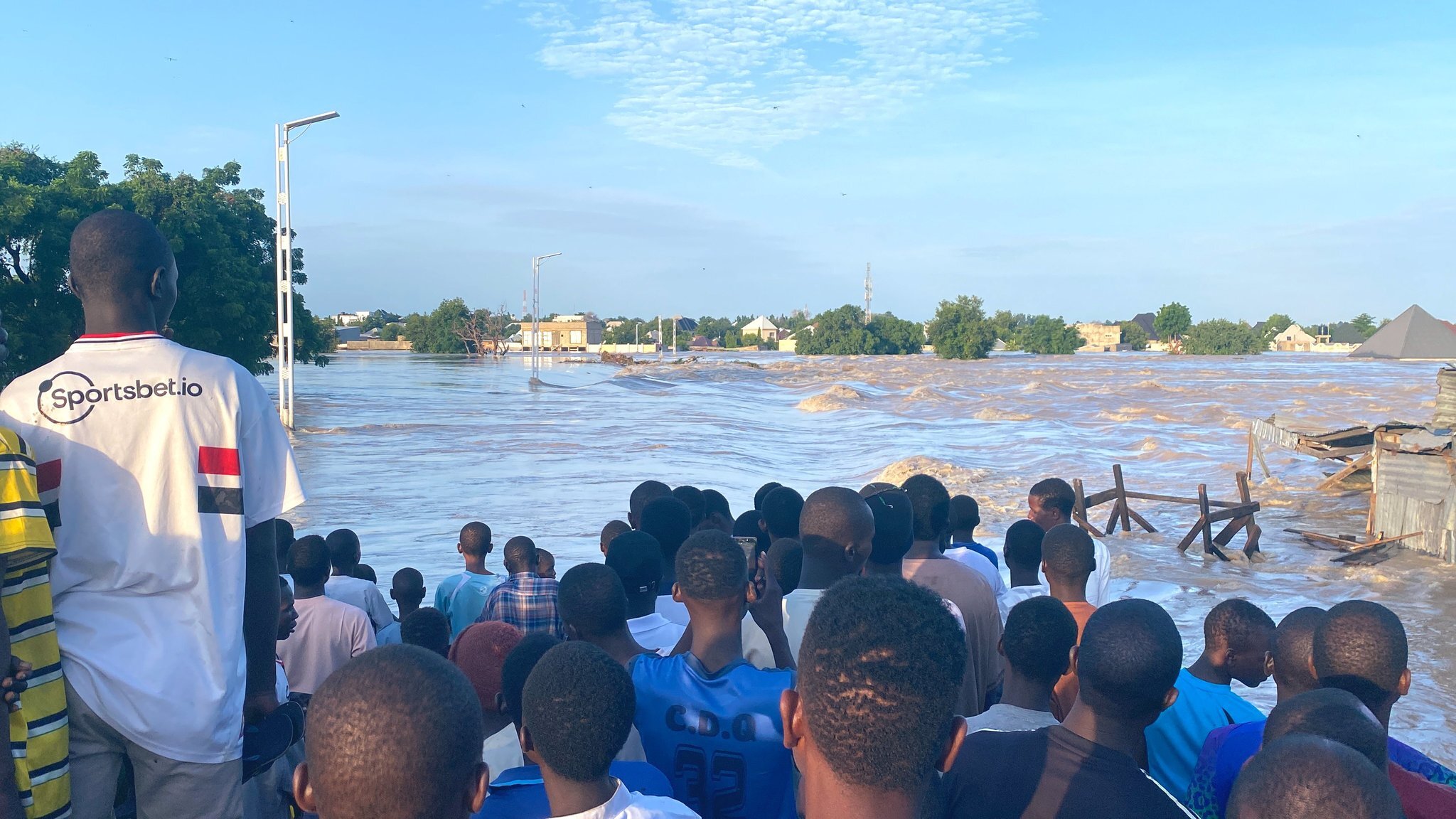The severe flooding which ravaged Maiduguri, the Borno State capital has claimed at least 30 lives, officials said Wednesday.
Hundreds of homes were flooded by the incident, which also caused significant damage to properties, including farmlands, residential areas, and business premises.
The disaster followed the collapse of the Alau Dam, which overflowed its banks, sending floodwaters from about 10 kilometres away into Maiduguri.
“The death toll is 30,” National Emergency Management Agency (NEMA) spokesman, Ezekiel Manzo, told AFP.
Residents, however, said the casualty figure could be higher as several people, including children, are still unaccounted for.
“Nobody has the actual number of people that died from this catastrophe,” said Tasiu Abdullahi, a resident of one of the affected areas in Gwange.
“It could be as high as sixty or more,” Babagana Modu, a taxi driver said. Key locations affected include the Monday Market, the Shehu of Borno’s Palace, Shehuri, Gwange, Adamkolo, Gamboru, Fori, Bulabulin, Post Office areas, Moromoro, and Customs Bridge.
The Gwange cemetery was swept away, with corpses seen floating through the streets.
Patients at the University of Maiduguri Teaching Hospital (UMTH) were left stranded as parts of the facility were flooded.
Borno State governor, Prof. Babagana Umara Zulum, said about one million people were affected by the flood.
The governor disclosed this to newsmen yesterday while distributing cash and cooked food to displaced persons taking refuge in Bakassi Camp in Maiduguri.
Governor Zulum said the full extent of the damage has yet to be determined but added that a rescue team has been deployed to affected areas to assess the losses in lives and property.
He also said a health emergency committee had been constituted to address potential outbreaks of flood-related diseases in Maiduguri and Jere.
The governor expressed concern about the spread of waterborne illnesses due to the flooding of sewage systems but assured that efforts are being made to mitigate the situation.
He said: “You can see how water completely flooded the area, sewages were completely flooded, that means waterborne diseases would be transmitted but In sha Allah we should get over it.
“As of now, we are yet to ascertain the extent of damage, but about one-fourth of the entire Maiduguri is flooded with water”, he said.
Food shortage hits Maiduguri
There is growing concern over a shortage of foodstuff and other commodities in Maiduguri as thousands of residents struggle for survival after a ravaging flood.
The News Agency of Nigeria (NAN) reports that the flood submerged major markets including grains, fruits and vegetable depots in the town, while many shopping complexes and plazas remain closed. The development had led to a shortage of food items, making the prices of the few available ones high.
“It is difficult to find foodstuff now as all major markets are submerged.
“I can’t operate my restaurant despite pressure from customers, because the foodstuff I stocked has been exhausted,” Hajara Mohammed said.
Other food vendors who attended to customers the previous day, including Amina Isa, Rhoda Abdullahi and Jummai Mohammed, said their stocks had also been exhausted and there was nowhere to restock.
NAN reports that the health sector was also affected as a result of the flood incident.


